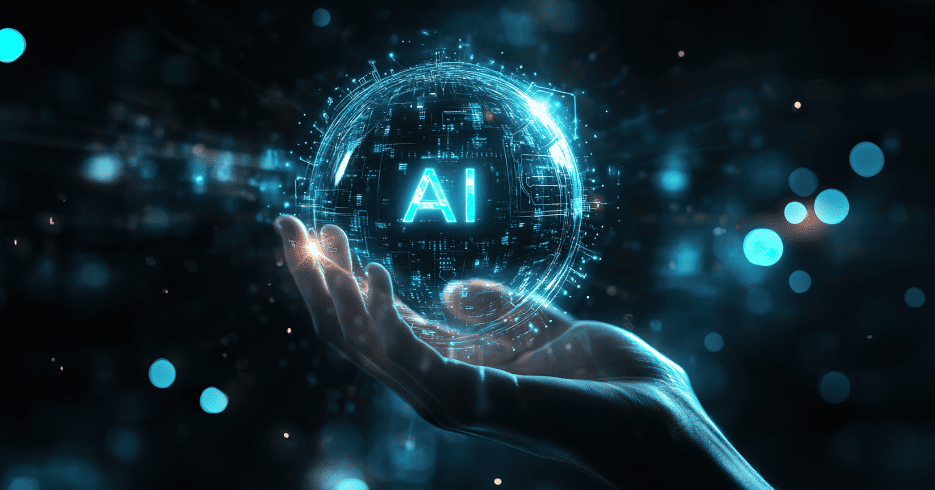The current state of AI in business is a fascinating narrative. As of 2025, fewer companies have successfully integrated AI into their daily operations than one might anticipate. However, the potential of AI in software creation is on a rapid rise, presenting challenges and opportunities for tech teams striving to outpace the competition.
The world of DevOps is changing quickly. Some big trends shaping the field include using AI to automate tasks, new ways of managing code called GitOps, and adding more security checks to the process (DevSecOps). However, companies face some tough challenges when they try to use these new ideas in the real world. Many developers find it hard to control AI when it makes mistakes or to write the right instructions for it to follow.
Top engineering teams have found practical ways to overcome these challenges. This article examines their successful approaches to integrating AI into DevOps – from using predictive analytics for better incident management to building automated testing and self-healing systems. We’ll share actionable strategies to address common implementation problems and show you how leading teams use AI to make their development workflows more efficient and reliable.
AI-Powered DevOps Automation in 2025
AI capabilities now extend far beyond basic automation in DevOps. The best engineering teams use AI to build systems that actively learn, predict issues, and fix problems without constant supervision.
Self-healing infrastructure represents a monumental shift in this space. These systems autonomously monitor for issues, analyse the situation, and rectify problems. Companies adopting this approach witness significant enhancements in their systems’ resilience and operational efficiency. The results are compelling—many organisations report a 60% reduction in downtime, all thanks to AI’s ability to pre-empt potential failures.
Innovative teams will rely heavily on predictive analytics as a core DevOps tool in 2025. Their machine learning models examine past deployment data—everything from code commits to success rates—to accurately forecast how new deployments will perform. This ability helps teams stop fighting fires and start preventing problems before they happen, making their services more reliable and issues easier to solve.
AI has entirely reshaped code review, with research showing that most DevOps teams believe AI will make its most significant mark in testing. These innovative review systems quickly flag essential issues, including:
- Security vulnerabilities and risks
- Performance bottlenecks and inefficiencies
- Code duplication and complexity
- Test coverage and quality gaps
AI has also made monitoring much more potent by automatically spotting unusual patterns and using available resources better. This creates real cost benefits since AI can predict what resources you’ll need and warn you before systems hit critical limits.
When problems occur, AI helps teams solve them faster by leveraging advanced techniques, including anomaly detection, to identify issues, categorise them, and suggest fixes automatically. These intelligent systems analyse logs, performance data, and past incidents to spot patterns and deviations from normal behaviour that people might miss. By employing anomaly detection algorithms, AI can quickly pinpoint unusual events or trends outside expected parameters, allowing for proactive problem-solving and minimising potential downtime or service disruptions.
How Top Teams Implement AI in CI/CD Pipelines
The best engineering teams focus their AI efforts primarily on Continuous Integration/Continuous Delivery (CI/CD) pipelines. Their innovative systems streamline development cycles and boost code quality without constant manual oversight.
Successful organisations use AI-powered anomaly detection throughout their CI/CD workflows to catch problems before deployment. These tools examine log data and performance metrics, flagging unusual patterns that might signal trouble. The results prove the value of this approach—real-world industrial projects show impressive 96% accuracy rates, 87.5% precision, and perfect 100% recall scores.
Smart CI/CD implementation relies on several key AI strategies:
- Automated test generation where innovative systems analyse code, user behaviours, and past test data to create meaningful test cases on their own
- Test optimisation using genetic algorithms to select the most valuable test cases, giving full code coverage while using fewer resources
- Predictive analytics that spot potential delays early, allowing teams to address risks before project timelines suffer
- Self-healing pipelines with monitoring systems that constantly check execution times, resource usage, and error rates for anything unusual
Intelligent algorithms help teams prioritise which tests matter most by weighing various factors, ensuring reliable software throughout development. AI also allows teams to avoid build failures by studying past data and identifying the warning signs that typically precede problems.
When adding AI to agile and DevOps environments, teams must balance multiple qualities in their systems: validity, reliability, safety, security, resilience, accountability, transparency, explainability, interpretability, privacy protection, and fairness.
Effective risk management frameworks enable teams to build, deploy and maintain AI systems that reduce risks, follow ethical guidelines, and meet compliance requirements. Regular risk checks and audits help teams find potential weaknesses throughout the AI lifecycle and address them promptly. This careful approach reduces the chances of data breaches and limits possible damage from security threats.
Artificial Intelligence in Agile and DevOps Collaboration
AI does more than improve automation and CI/CD processes—it fundamentally changes how teams work together, closing the long-standing divide between development and operations teams.
Due to time pressures, documentation tasks often fall to the bottom of priority lists. AI solves this problem by automatically generating and maintaining documentation through codebase analysis. This smart approach creates everything from technical specs to user guides that sync with code changes. Teams using AI for documentation consistently report better knowledge sharing and quicker onboarding for new team members.
Resource management becomes much more efficient with AI-powered predictive analytics. These systems study past data and usage patterns to forecast your needs, spot potential bottlenecks before they happen, and scale resources automatically. This innovative approach stops teams from wasting money on unused resources, which is especially important for teams running cloud-native applications.
AI makes sprint planning more effective in Agile teams through data-backed insights. The tools look at previous sprint results to help prioritise backlog items based on actual business value and team capabilities. They handle tedious administrative work like tracking status and reporting progress, freeing team members to focus on work that truly matters.
Perhaps the most significant benefit comes during problem-solving. AI helps teams identify the actual root causes of incidents by spotting underlying issues that human operators often miss. This prevents the same problems from happening again and builds stronger problem-solving capabilities across DevOps teams.
The key takeaway: AI has become essential to modern DevOps, making self-healing infrastructure, predictive analytics, and automated testing practical realities.
Feeling lost in the world of AI for your business? You’re not alone. Luckily, we’re here to guide you and provide clarity.
At Warp Development, we cut through the hype: no jargon, no fluff, just practical AI solutions tailored to your needs. We’re here to boost your productivity and unlock your business potential with user-friendly AI tools that you can easily incorporate into your operations. Contact us here.
References
[1] - https://about.gitlab.com/topics/devops/the-role-of-ai-in-devops/
[2] - https://www.researchgate.net/publication/388634507_Self-Healing_Infrastructure_AI-Powered_Automation_for_Fault-Tolerant_DevOps_Environments
[3] - https://brainupgrade.in/self-healing-devops-pipeline-guide/
[4] - https://www.researchgate.net/publication/383425158_Predictive_Analytics_in_DevOps_Forecasting_Deployment_Success1
[5] - https://kodekloud.com/blog/how-to-run-predictive-analytics-in-devops/
[6] - https://cioinfluence.com/analytics/predictive-analytics-in-itsm-reducing-downtime-and-improving-incident-resolution/
[7] - https://www.innovationnewsnetwork.com/using-ai-to-ensure-quality-engineering-in-devops-software/36983/
[8] - https://www.accelq.com/blog/ai-in-devops/
[9] - https://www.devopsdigest.com/how-devops-will-evolve-in-2025-orchestrating-ai-automation-and-multi-instance-management
[10] - https://www.sciencedirect.com/science/article/pii/S1319157823000393
[11] - https://www.researchgate.net/publication/388795031_AI-Driven_Test_Case_Generation_and_Optimization_in_DevOps/download
[12] - https://devops.com/ai-powered-devops-transforming-ci-cd-pipelines-for-intelligent-automation/
[13] - https://devops.com/reimagining-ci-cd-ai-engineered-continuous-integration/
[14] - https://airc.nist.gov/airmf-resources/airmf/3-sec-characteristics/
[15] - https://www.ibm.com/think/insights/ai-risk-management
[16] - https://devops.com/how-generative-ai-can-streamline-code-documentation/
[17] - https://www.linkedin.com/pulse/ai-smart-resource-optimization-revolutionizing-compute-veer-bahadur
[18] - https://timspark.com/blog/ai-for-devops-team/
[19] - https://agilemania.com/ai-helping-scrum-master-for-sprint-planning
[20] - https://www.linkedin.com/pulse/artificial-intelligence-scrum-transforming-agile-teams-marinho-ldpgf
[21] - https://insights.daffodilsw.com/blog/top-ai-tools-for-devops-automation



